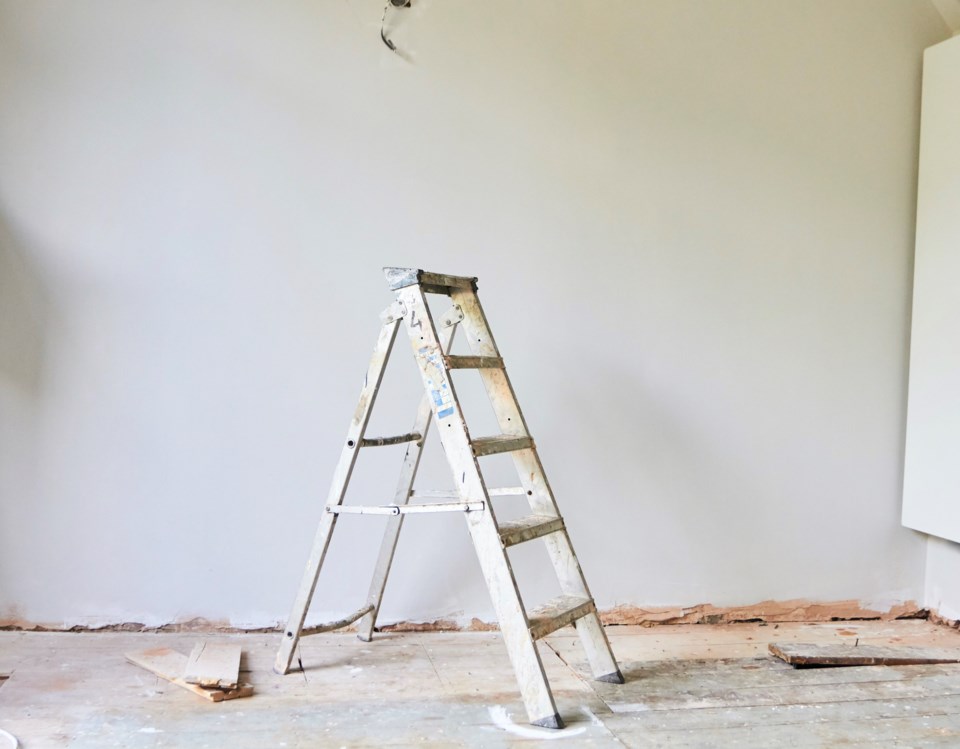An owner of a Broadmoor condo was recently handed a $3,000-bill after a pinhole leak from common pipes left her living with an opened ceiling for three months.
Leaks in condos, apartments, houses, and commercial premises aren’t rare occurrences by any means. But the issue of paying for repairs and restoration remains confusing to many, and Betty Sung is one of them.
It all started in March, when Sung’s husband discovered a puddle of water in their condo bathroom. They contacted their strata, and an initial emergency crew was called in.
To identify the leak, crews sent by the strata opened the bathroom ceiling and exposed the drywalls, ultimately finding a pinhole leak in one of pipes.
The strata has since replaced the piping, but Sung is still living with a hole in her ceiling, she explained to the News.
“We don’t know if it’s safe to live with exposed drywalls,” she said.
Sung told the News she was surprised when the strata charged her around $3,000 for the initial crew’s fees. Although, the strata paid for the cost of replacing the piping.
According to Sung, the strata council had refused to pay the restoration invoice because it was below their deductibles. The strata told Sung that under the bylaws of the Strata Property Act, it is the owner’s responsibility to repair items contained within their strata lot, and she should contact her insurance broker.
There was also no mention of repairing the ceiling, which was opened by the crew hired by the strata.
“I’m open to splitting the costs with the strata, but they didn’t warn me of the costs beforehand,” said Sung.
The News was told the strata maintains it is totally complying with the laws of the province, and that the leak was accidental and not caused by its negligence.
To make this seemingly complicated matter even more confusing, Sung told the News that her insurance broker refused to send an adjustor when she first tried to make a claim months ago. Only recently did she get assigned a new broker, who is now looking into the situation.
“We’re inexperienced and we don’t know what to do,” she said.
In the meantime, Sung is trying to negotiate with the strata, but to no avail. And the language barrier doesn’t help since English is Sung’s second language.
“We’re totally stuck,” she said.
Strata partially responsible for restoration, said CHOA executive director
According to Tony Gioventu, the executive director of the Condominium Home Owners Association of BC (CHOA), there’s a straightforward answer to all this.
“The basic principle is that the hot and cold domestic water system in a condo building is common property. So, the pipes in the walls between units are all common property. The repair of those is the responsibility of the strata corporation,” he said.
Moreover, repairing the hole in the ceiling is also the strata’s responsibility because that damage was done in the process of repairing the common property pipes.
“The strata corporation needs to do these repairs, they need to pay for the repairs. And if they don’t, then she should file a claim with Civil Resolution Tribunal (CRT),” said Gioventu.
A 2018 CRT decision Thompson v. The Owners, Strata Plan LMS 2349 follows this reasoning. The tribunal decided that the strata is responsible for repairing a ceiling inside a condo unit that it had removed, because the strata had intentionally caused the damage to fix a common property pipe.
However, the $3,000 invoice from the initial crew for their emergency response work should fall under Sung’s insurance, Gioventu explained.
But the CRT might decide otherwise, depending on factors such as circumstances of the leak and strata bylaws.
In a 2021 CRT decision Chen v. The Owners, Strata Plan NW 308, the tribunal found the strata lot owner should not have to pay for initial emergency work to fix damaged caused by a common property because he never agreed to pay and the damage was not caused by his negligence. Previous CRT decisions aren’t necessarily binding.



